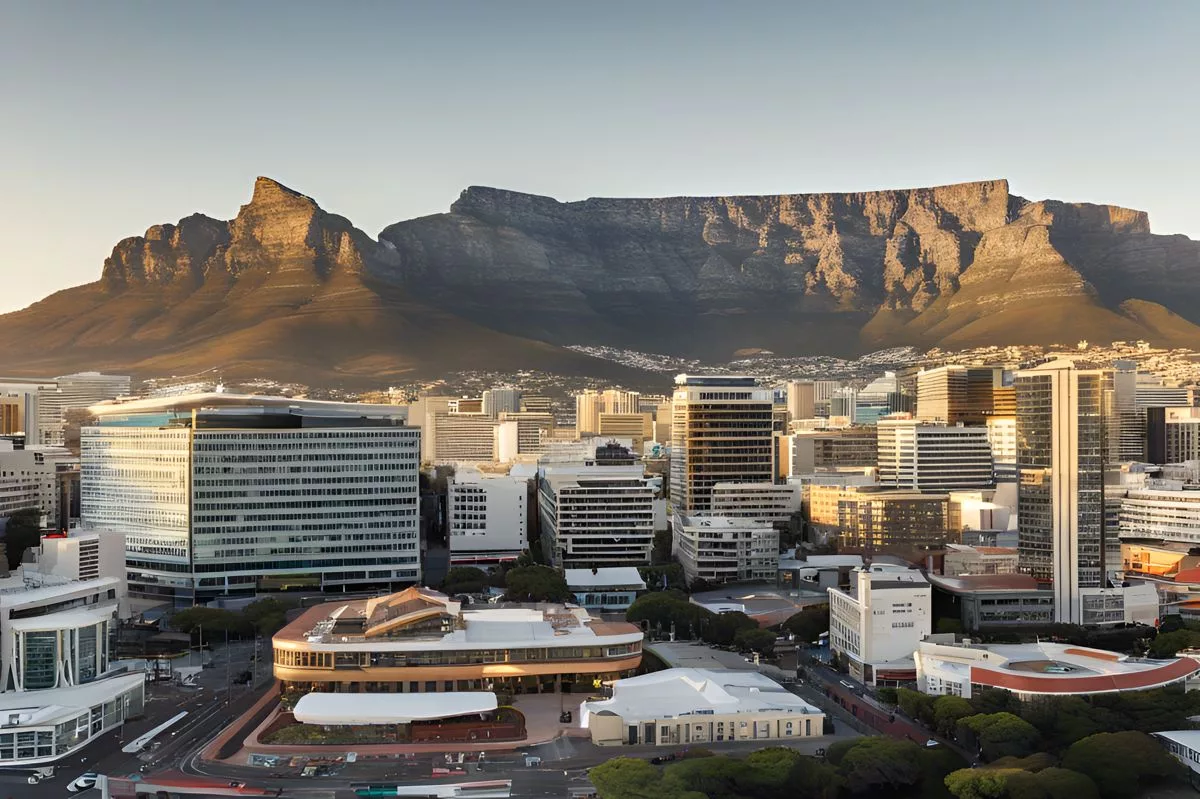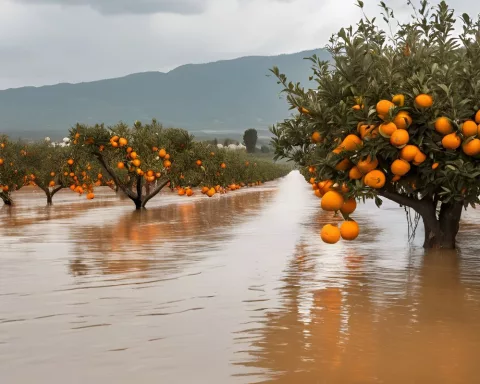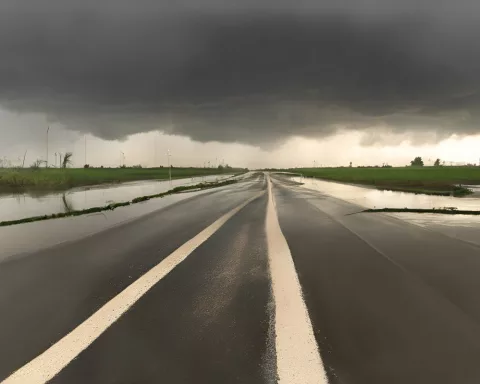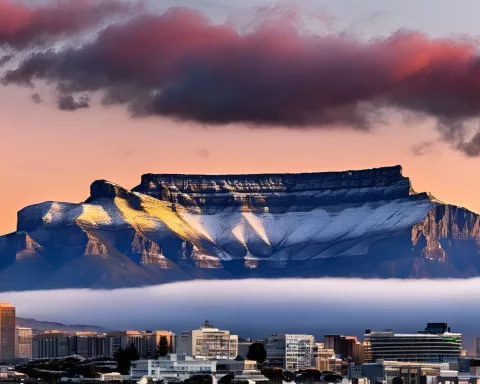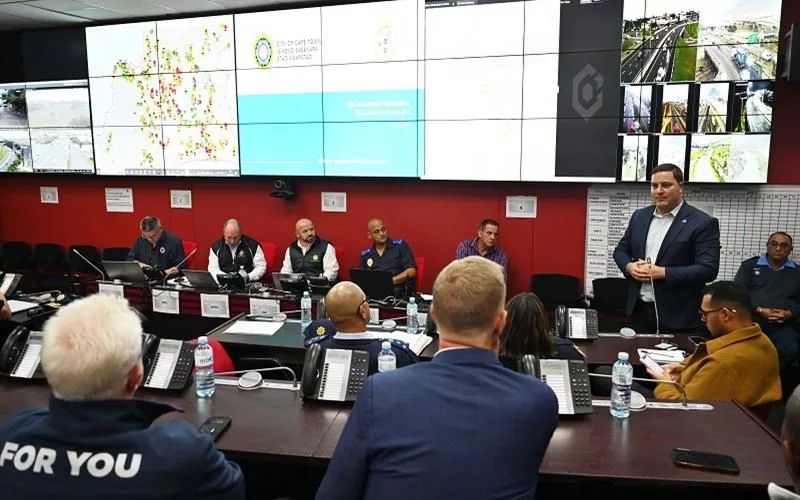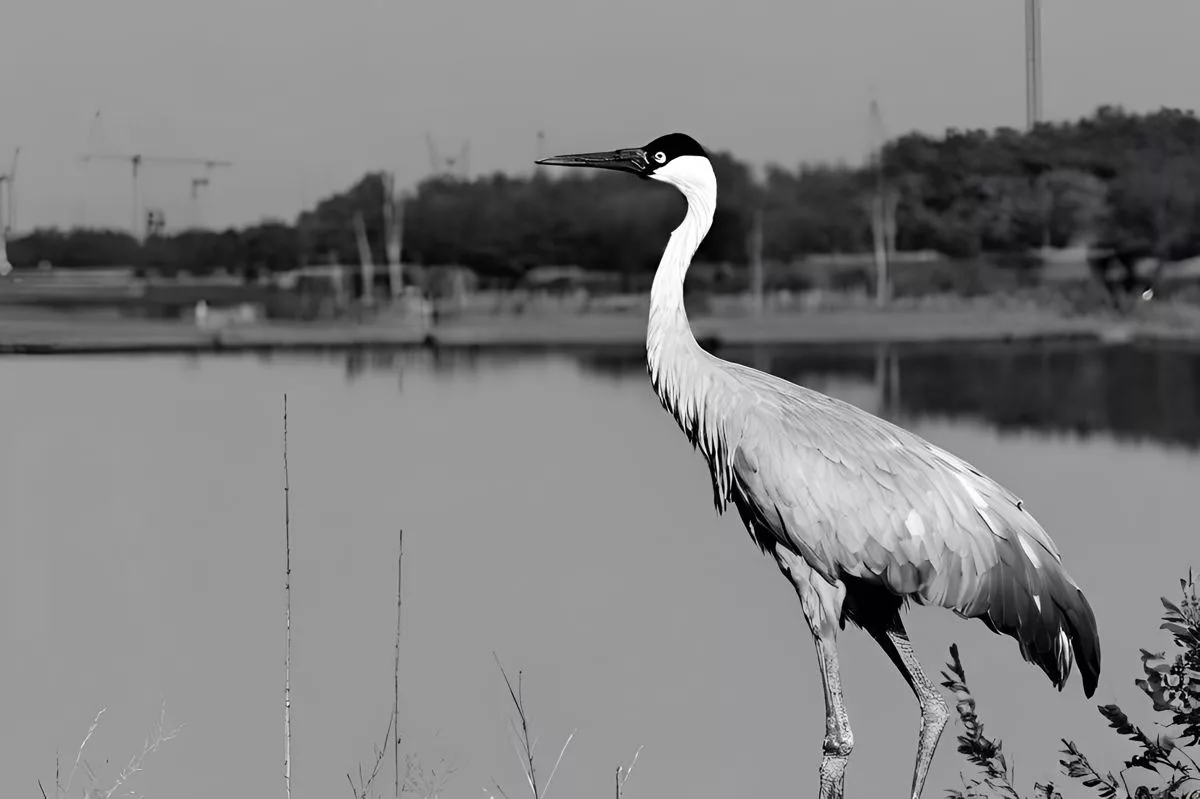The Western Cape is experiencing an economic revival thanks to the business events industry, with 30 new bids set to generate over R1 billion in economic output and create jobs across multiple industries. The events range from international congresses to global conferences, and the Western Cape’s state-of-the-art facilities make it an attractive destination. The region has a track record of successfully hosting international events and is committed to doubling tourist numbers by 2035, with business events playing a crucial role in achieving this goal.
Boosting the Western Cape’s Economy: The Impressive Gains from Forthcoming Business Events
Discover the economic revival of the Western Cape, fueled by the dynamic business events industry. The acquisition of 30 new bids is set to generate a remarkable economic output of R1.029 billion, creating numerous job opportunities across the hospitality, food and beverage services, and tourism industries. The Western Cape’s successful bids cater to a vast spectrum of events, ranging from international congresses to global conferences, extending until 2029.
Section 1: The Economic Awakening of the Western Cape
The Western Cape, with its vibrant heart in the bustling city of Cape Town, is experiencing a significant economic revival, fueled by the vigorous dynamics of the business events industry. The Cape Town and Western Cape Convention Bureau, a part of Wesgro – the Western Cape’s organization for promoting tourism, trade, and investment- recently delivered a momentous achievement, successfully acquiring 30 new bids for the province for the fiscal timeline from April 2023 to March 2024.
These bids are projected to generate a remarkable economic output of R1.029 billion, a milestone never before reached in the tenure of Wesgro’s Convention Bureau. The Western Cape’s Minister of Finance and Economic Opportunities, Mireille Wenger, regards this influx of upcoming events as a significant stride for the province. He accentuates the far-reaching implications of this economic upsurge, particularly in the generation of a multitude of job opportunities across the hospitality, food and beverage services, and tourism industries.
Section 2: A Diverse Array of Winning Bids
The successful bids cater to a vast spectrum of events, ranging from international congresses to global conferences, extending till 2029. Notable among these are the World Congress of Public Health scheduled for September 2026, and the International Botanical Congress planned for July 2029. It is estimated that each of these events will draw approximately 4,000 delegates, contributing a considerable boost to the Western Cape’s economy during the less busy tourism periods.
Further, the Western Cape will also play host to the World Congress of Family Doctors and the World Congress of Neurology in 2027, both of which are expected to attract substantial attendance. Particularly, the World Congress of Neurology anticipates a delegate count of around 3,500 as per the released statement.
Section 3: The Western Cape’s Unique Charm and Track Record
The Western Cape’s distinctive charm is rooted in its commitment to creating a favorable environment for international events. Wesgro CEO, Wrenelle Stander, underscores the region’s state-of-the-art facilities as a critical factor in attracting events. Renowned venues such as the Century City Conference Centre and the Cape Town International Convention Centre (CTICC) elevate its attractiveness. The CTICC, which recently underwent an expansion, stands as one of Africa’s leading conference venues.
The region has demonstrated an impressive track record in hosting international events. Between 2013 and 2022, Cape Town has hosted 405 international association meetings, while Stellenbosch has accommodated 84. Combined, these events have drawn more than 225,000 delegates, which attests to the region’s capacity and potential in managing large-scale international events.
Section 4: The Western Cape Government’s Economic Vision
The Western Cape Government’s economic action plan is focused on doubling the influx of tourists to the province by the year 2035. The strategy isn’t merely about ramping up visitor numbers but also about encouraging them to prolong their stay, increase their spending, and spread the economic benefits throughout the province. Attracting more business events, of varying scales, is a fundamental plank of this strategic vision.
Wenger maintains a positive outlook on achieving this ambitious target, as the escalating number of business events is expected to not only invigorate the local economy but also create a plethora of job opportunities. The Western Cape’s triumph in securing these prestigious events emerges as a beacon of hope for the province, showcasing its irresistible appeal to global visitors and its promising potential as an economic dynamo.
1. How is the Western Cape’s economy being boosted?
The Western Cape’s economy is being boosted by the business events industry, with 30 new bids set to generate over R1 billion in economic output and create jobs across multiple industries.
2. What kind of events are included in the successful bids?
The successful bids cater to a vast spectrum of events, ranging from international congresses to global conferences, extending until 2029.
3. What is the Western Cape’s unique charm and track record?
The Western Cape’s distinctive charm is rooted in its commitment to creating a favorable environment for international events. Renowned venues, such as the Century City Conference Centre and the Cape Town International Convention Centre (CTICC), elevate its attractiveness. The region has demonstrated an impressive track record in hosting international events.
4. What is the Western Cape Government’s economic vision?
The Western Cape Government’s economic action plan is focused on doubling the influx of tourists to the province by the year 2035. Attracting more business events, of varying scales, is a fundamental plank of this strategic vision.
5. What is the economic output of the 30 new bids?
The 30 new bids are projected to generate a remarkable economic output of R1.029 billion, a milestone never before reached in the tenure of Wesgro’s Convention Bureau.
6. What are the potential job opportunities from the upcoming business events?
The incoming events are projected to create numerous job opportunities across the hospitality, food and beverage services, and tourism industries.

